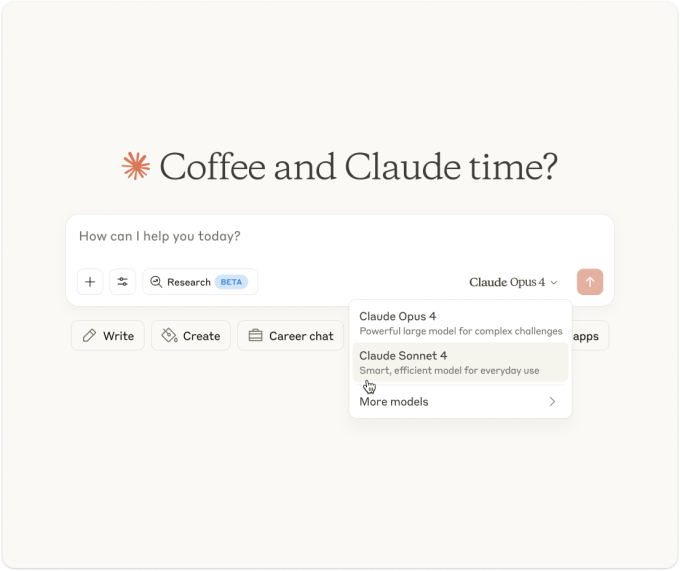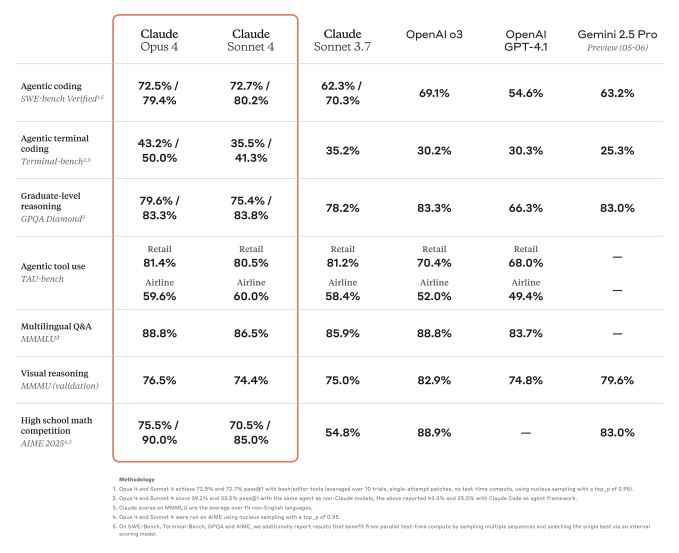In a groundbreaking announcement at its first developer conference, a prominent AI startup unveiled two innovative models that are poised to set new standards in the industry. These models, known as Claude Opus 4 and Claude Sonnet 4, are designed to excel in various tasks, particularly in programming and data analysis, showcasing their potential to revolutionize how we interact with AI.
Claude 4 represents a significant leap forward in AI technology, enabling users to tackle complex tasks and analyze extensive datasets with remarkable efficiency. The models are specifically optimized for programming challenges, making them ideal for developers looking to enhance their coding and debugging processes.
Access to Sonnet 4 will be available to both paying users and those utilizing the free chatbot applications, while Opus 4 will be exclusive to subscribers. Pricing for these models on the API, accessible through major cloud platforms, is set at competitive rates, ensuring that users can leverage their capabilities without breaking the bank.
To put it into perspective, a million tokens, the unit of measurement for AI data processing, equates to approximately 750,000 words, significantly surpassing the length of classic literary works.

As the company aims to expand its revenue streams, the introduction of Claude 4 models comes at a crucial time. With ambitious financial projections for the coming years, the startup is strategically positioning itself to compete in a rapidly evolving market. Recent funding rounds have bolstered its financial foundation, allowing for continued investment in cutting-edge AI research and development.
In a competitive landscape, maintaining a leading edge is essential. While the company has made strides with its previous models, competitors are also advancing their technologies, making it imperative for the startup to innovate continuously.
The standout model, Opus 4, is engineered to maintain a high level of focus throughout complex workflows, enhancing productivity and efficiency. Sonnet 4, on the other hand, serves as an improved version of its predecessor, offering enhanced capabilities in coding and mathematical tasks while adhering more closely to user instructions.
One of the notable advancements in the Claude 4 family is its reduced likelihood of engaging in problematic behaviors, such as exploiting loopholes in task specifications. This improvement reflects the company’s commitment to responsible AI development.
While the Claude 4 models have not yet achieved the title of the best in every category, they have demonstrated superior performance in specific benchmarks, particularly in coding tasks. However, they still face challenges in certain evaluations, indicating that there is room for further enhancement.

To ensure safety and reliability, the company is implementing stricter safeguards with the release of Opus 4, including advanced content moderation and cybersecurity measures. These enhancements are crucial as the potential misuse of AI technology remains a significant concern.
Both models are classified as hybrid systems, capable of delivering quick responses while also engaging in deeper reasoning processes. This dual capability allows them to provide more thoughtful and nuanced answers to complex queries.
As they process information, the models will present users with a clear summary of their reasoning, enhancing transparency and user understanding. This approach not only aids users but also protects the company’s competitive edge.
Claude 4 models are equipped to utilize multiple tools simultaneously, allowing for a more comprehensive approach to problem-solving. They can also retain information over time, building a repository of knowledge that enhances their performance on recurring tasks.
To further support developers, the company is enhancing its coding tool, Claude Code, which now integrates seamlessly with popular development environments. This upgrade facilitates a more efficient workflow for programmers, enabling them to harness the power of AI in their coding practices.
Despite the challenges that AI models face in producing high-quality code, the demand for AI-assisted coding solutions continues to grow. Companies are increasingly adopting these technologies to boost productivity, even as they navigate the complexities of software development.
Recognizing the need for continuous improvement, the company has committed to more frequent updates for its models, ensuring that users benefit from the latest advancements in AI technology.
